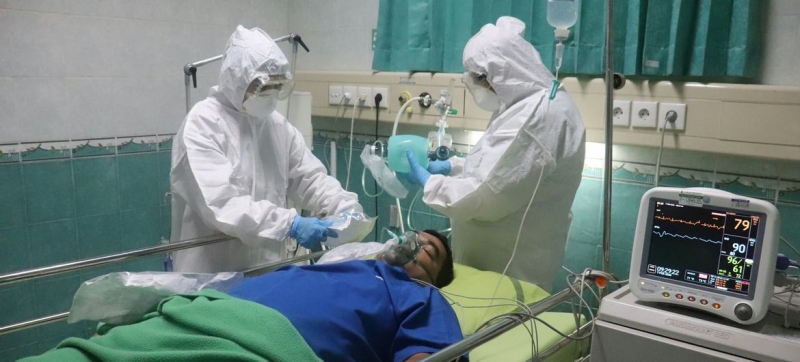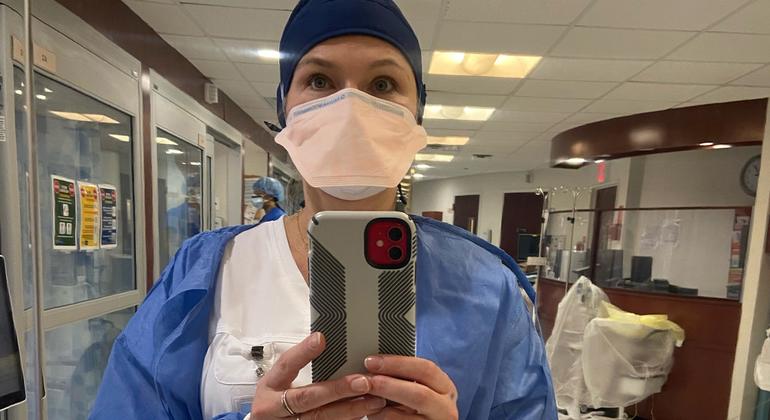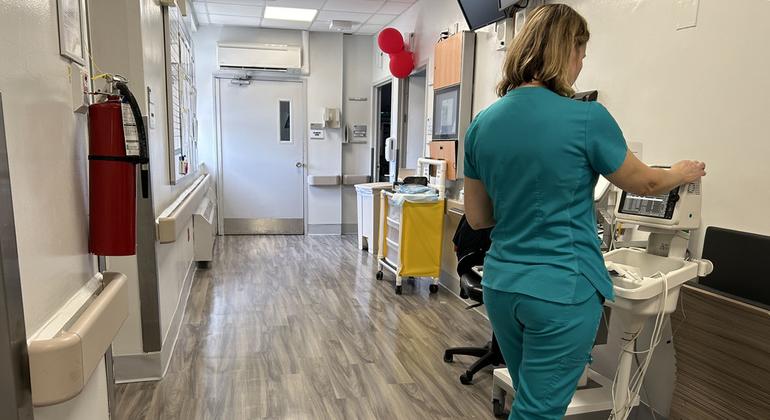
“Pandemic in our time? All this simply did not fit into my head.” New York nurse on pandemic times: “The hospital looked like there was a war going on outside” Healthcare
Every year on May 12, the world celebrates International Nurses Day. The holiday is dedicated to the birthday of Florence Nightingale, one of the founders of the first sisters of mercy service. On the eve of International Day, UN News spoke with Olga, a Russian-speaking nurse who works in a hospital in New York, about the peculiarities of this profession.
UN News Service: First of all, congratulations on your professional holiday! As far as we know, initially, before moving to America, you had a completely different profession. How did it happen that you started working in the medical field?
Olga: Yes, I came from Belarus to America with my university profession – translator and French teacher. It was, of course, impossible to find a job as a teacher of French that is not your native language in New York…
One day I was leafing through a local Russian-language newspaper, the advertising section. I came across a position as a pharmacist assistant in a small Pakistani pharmacy, which served mainly recent immigrants, including Russian speakers. I spoke Russian and they took me.
For me, this was my first job related to medicine. I learned to understand medications, their ingredients, brands…
After three years, I began to think that I needed to do something, move somewhere. I was offered a job as a pharmacist’s assistant, but in a hospital. It was a more skilled job. I received a certificate, which then had to be renewed every two years.
UN News Service: And then at some point you decided to get a higher education medical education…
Olga: One day I went into the intensive care unit. I brought medicine there from our pharmaceutical department. I saw nurses gathered around one of the patients and giving him CPR (resuscitation – editor’s note). That is, in essence, they brought a person back to life. I thought I would like to become one of those nurses. This was the impetus.
I went to college and studied there for 15 months. It was an accelerated program, but very expensive. I had to take out student loans. I’m still paying them off.
UN News Service: You haven’t worked all this time? How did you survive in New York?
Olga: My husband worked. Parents helped. After 15 months, I passed the exams, received a bachelor’s degree and went to work in the same hospital where I worked before, but as a nurse.

.
I currently work in the progressive therapy department. This is a step lower than intensive care. Patients who were in the intensive care ward, in the intensive care unit, they come to us after treatment.
UN News Service: How many patients do you usually have ?
Olga: Ideally there should be five people, but in reality there is more. The hospital is relatively small, but there are many patients.
UN News Service: There are cases when a hospital refuses to accept a patient who does not have health insurance?
Olga: This never happens. In America, any person, even if he is an illegal immigrant without any means, will always receive help in the hospital.
UN News Service: Were you prepared for what you saw in the hospital? For the intense pace of work?
Olga: Well, to be honest, then, of course not. School is one thing, but the school of life is completely different. I was afraid, because it was a big responsibility after all. And then it’s exhausting, hard work 12 hours a day. But this is my conscious choice. I love my job, I love people, and it doesn’t matter what they are, where they come from, poor, rich, what race…
UN News Service: In 2020, a pandemic hit. You probably felt the approaching catastrophe before others?
Olga: We were told about a month in advance that a new, rapidly spreading viral infection had appeared. But no one expected such a scale. There was no fear, but I personally was bewildered. A pandemic in our time? All this simply did not fit into my head.
A pandemic in our time? All this simply did not fit into my head head.
The administration announced that from such and such a day no visitors are allowed into the hospital. Then they began to bring in patients with the same symptoms en masse. There weren’t enough beds in the wards, people were lying in the corridors. The hospital looked like there was a war going on outside. This, in essence, was a war, but the enemy was a virus.
There was chaos inside the hospital in the first days. We simply did not understand how people could die so quickly and in such numbers. If a person could not breathe on his own, he was connected to a ventilator. It’s just that at that time there was no other way to save the sick. But this method leads to many other problems: additional infections, sepsis, and so on. Two or three weeks – and the patients could not withstand artificial respiration. We began to lose people.
Our hospital is small, and the morgue is also small. Soon a large refrigerator appeared in the yard – a mobile morgue. And a week later there were already two of them.
UN News Service: How did you survive all this?

Olga: Message. Well, they helped us, of course. All the nurses who worked in the operating rooms went to work in the departments. Specialists arrived from other states that had not yet been reached by the pandemic. Private companies, on their own initiative, brought masks, gloves, sanitizers, power banks, and batteries to our hospital. Private restaurants brought food to the hospital and fed us at their own expense.
UN News Service: And then you yourself became infected…
Olga: In the first month of the pandemic. I had a patient, a rather overweight woman. She felt very bad, she tried to get out of bed. She was all gray and couldn’t breathe. And at that moment my mask was hanging somewhere on my chin, there was no time to fix it. I ran up and grabbed her so she wouldn’t fall. Without a mask. And just a couple of days later I was already sick.
Fortunately, my Covid passed in a mild form. And so did my husband, whom I immediately infected. We were both sick in isolation at home, neighbors brought us groceries and left them at the door.
Nobody wanted to get sick, of course. Among the medical staff, including. Nobody wanted to, but in the end everyone got sick several times. Unfortunately, we lost several colleagues that year.
UN News Service: After working as a nurse, you decided to move up one more step… .
Olga: This is my second year, continuing to work at the hospital , I’m studying for a master’s degree. Once I graduate, I will work independently as an independent health care provider.
UN News Service: Because of your profession, you often see patients die. Your work gives you depressive thoughts?
Olga: It happens. But there are also many bright moments. I am always happy when I see that when patients recover, they are greeted by their relatives and leave the hospital. This happens more often.
